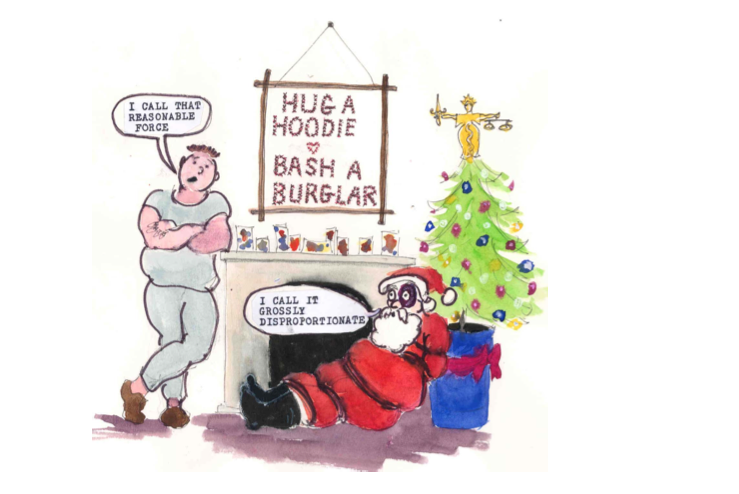I avoid social media at all costs – not because I have better things or because of some misplaced feeling of intellectual superiority – but rather because I suspect that I am too thin skinned and technically deficient to enjoy. But recent media coverage of the practice of internet trolling makes me ever more thankful for my woeful IT skills.
Trolls – defined by Urban Dictionary as people who ‘post a deliberately provocative message to a message board with the intention of causing maximum disruption and argument’ – are rarely out of the news. They are very different from the creatures found in Grimm’s Fairy Tales – rather than lurking beneath bridges they inhabit the open air of the internet – venting whatever spiteful, hateful or moronic comment comes to mind at 3am.
- You can read about the Nicola Brookes case HERE.
Celebrities such as Gary Barlow and Tom Daley have been recent targets of abuse. But increasingly any public (or private) grief appears to be fair game. Matthew Wood a 19 year old, was given a 12 week sentence after posting ‘grossly offensive’ comments on Facebook about April Jones, the five-year old, who disappeared from her home in Machynlleth, Wales on the 1st October this year.
The most pertinent question for lawyers is what, if anything, should the law do about ‘internet trolls’?
The European Courtunsurprisingly has been robust in its defence of the freedom of expression (especially in the political sphere) as secured in paragraph 1 of Article 10. As far back as 1986 the court said (in Lingens v Austria) that freedom of expression covered not only:
‘… information and ideas that are favourably received or regarded as inoffensive or a matter of indifference, but also those that offend, shock or disturb. Such are the demands of that pluralism, tolerance and broadmindedness without which there is no democratic society.’
Of course Article 10 is not without limit. By Article 10(2) free expression is limited ‘in the interest of national security, territorial integrity or public safety, for the prevention of disorder or crime, for the protection of health or morals, for the protection of the reputation or rights of others, for preventing the disclosure of information received in confidence, of for the maintaining of authority and impartiality of the judiciary’.
However there is now a vast body of law that can be used to prosecute trolling, normally on the grounds of harassment and involving the application of one of s127 of the Communication Act 2003, s.1 of the Malicious Communications Act 1998, the provisions of the Protection from Harassment Act 1997, or in a few cases where the form of trolling has been racially or religiously aggravated (such as Liam Stacy who left abusive tweets about footballer Fabrice Muamba after his cardiac arrest), the Public Order Act 1986.
None of our business
Britain’s Director of Public Prosecutions is now planning to issue ‘guidelines’ for prosecutors on when ‘criminal charges should be brought’ in relation to trolling incidents after a ‘series of roundtable meetings with campaigners, media lawyers, academics and law enforcement bodies’. But is it any of the law’s business what you or I or the self indulgent and flatulently verbose hoggers of online message boards say?
Certainly it cannot be the job of the criminal law to protect the public against remarks that are in bad taste or opinions that are controversial – that much is clear from the case law around free expression and Article 10. But how offensive does a message have to be to qualify as “grossly” offensive and to therefore meet – what should arguably be an extremely high threshold – for bringing prosecutions under say section 127 of the 2003 Act?
A message might be more likely to lead to a prosecution if it was part of a concerted campaign of harassment against an individual or individuals; if it was a credible threat to the life of the recipient or the recipient’s family; or if it was an incitement to hatred on grounds of gender, race, religion, disability or sexual orientation. Someone who re-tweeted such a message – and therefore gave it a much larger circulation — might also face prosecution. However prosecutors would clearly need to be careful to ensure that subjective factors – such as the recipient’s distress – did not carry too much weight – similarly public opinion.
My concern is that the debate around the best way to deal with trolling is moving further and further away from a policy of simply ignoring, shaming or censuring people who seem to thrive on causing hurt and upset and more and more towards banging them up for ever increasing periods. In doing so there is a real danger that what might actually be areas where the law might become involved (such as making credible threats to kill or maim others, putting people in genuine fear for their safety etc) are being conflated with areas, remarks and opinions over which the state should have no authority and of which the law should stay well clear.
You might not like what people say on the internet, or how they say it, but that is quite frankly tough. If I responded to everything I find annoying or offensive, then I would either be locked up or have been driven mad some time ago. I recognise that freedom of speech means being surrounded by, and sometimes subjected to, ideas or outlooks that make you feel uncomfortable, even nauseous. I hope the DPP will do likewise.





